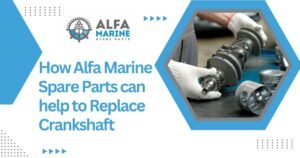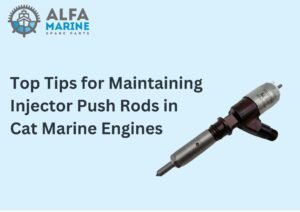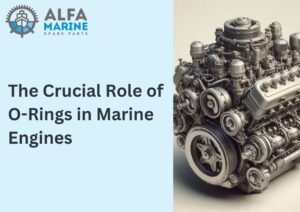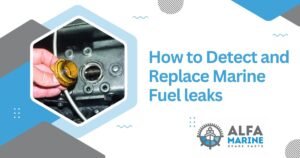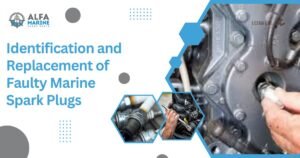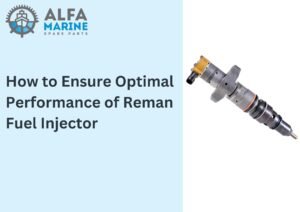We all hear and read, and some of you might get a chance to see how mesmerizing marine life is. However, the vessels, either small or huge, that help us explore this wonderful world are as complex as the marine life.
Vessels like yachts or huge carrier ships are manufactured by assembling a number of Marine Power Parts, but there is one component that helps them keep going. Can you guess what that is?
Propeller
A propeller is a device that looks like a spinning fan and is used to move a ship forward by sending power from the ship’s main engine to it.
The power that is sent is changed from rotational motion to thrust, which gives the water momentum and works as a force on the ship to move it forward.
Propellers are crucial to the operation of your boat, so it’s important that you know how to keep them in good repair and when to replace them. You have a higher chance of rescuing your Propeller if you notice diminished performance and damage early on.
Keep reading, and we’ll show you how to maintain your Propeller.
How To Maintain Your Boat’s Propeller
With a proper maintenance schedule, you can extend the lifespan of your propeller and ensure you’ll have peak performance on the water.
There are several elements of caring for boat propellers, including:
Visual Inspection: Looking at the Propeller will help you determine if any external damage might affect your boat’s performance. It’s best to inspect it before every launch, so include a propeller inspection on your checklist before heading out. After you finish a ride, looking at the Propeller will help you avoid making last-minute repairs.
When looking for damages, note any dings, nicks, scratches, or dents. You can quickly identify these issues; they’ll only require a simple repair if they aren’t too deep or broad.
Cleaning: Thoroughly clean your propellers following every use in order to eliminate any debris, algae, or marine growth.
Greasing: Coat the propeller shaft and any moving components, including the hub, with marine-grade lubricant. This assures a smooth rotation and prevents corrosion.
Contingency Kit: Maintain a backup propellers and essential equipment aboard in the event of damage necessitating prompt replacement.
Professional Inspection: At least once a year, have a professional inspect and maintain your watercraft’s propulsion system, including the propeller. This enables early detection of any underlying issues.
Summary: Regular maintenance of each component of your vessel is crucial, so never skip this task. And if your boat sails in water often, you should also have a few key Bosch Marine Parts available on the boat. You don’t have to wait for long to get these parts because you will get all the parts from different brands at ALFA Marine Spare Parts.
FAQ
A boat propeller acts like an underwater fan. Its angled blades spin, pushing water backward, which creates an equal and opposite force that propels the boat forward.
Following are the different types of propellers:
1. Structure: Fixed pitch propeller, Controllable Pitch propeller
2. Number of Blades: 2,3,4 and even more blades
3. Installation Forms: Standard on shaft propeller, Ducted propeller, contra-rotating propeller.
Choosing the correct boat propeller is challenging since you must examine numerous criteria, such as boat type, usage (maximum speed, acceleration, average speed), engine type and horsepower, and more. However, 3-blade propellers are good for fishing boats and small—to medium-sized vessels.
ALFA Marine Spare Parts doesn’t restrict you to a single brand. We provide a variety of parts from different manufacturers like Bosch, cumins, cat, and more, allowing you to find the specific components you need for your boat.
There are a few signs that your propeller might need attention:
1. Reduced Performance
2. Vibrations
3. Unusual Noises


